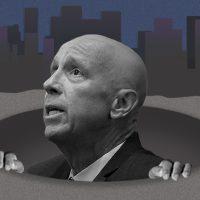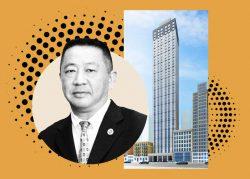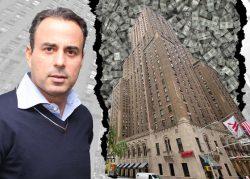Arne Sorenson, Marriott International’s CEO and president, wants office workers to get back to business.
On the company’s third quarter earnings call on Friday, Sorenson said that he expects it will take “a vaccine or two” to jumpstart the hospitality sector, but based on his conversations with some of Marriott’s bigger corporate clients, there is mounting pressure to get back to business as normal.
“I do think there is an increasing sense that with each passing month, we lose a little bit more in terms of the connective tissue between our people in companies in all sorts of different industries,” he said.
Read more



According to Sorenson, Marriott reported some “meaningful improvement” in the third quarter, after saying that the Covid-induced crisis for hotels hit bottom in the previous quarter.
Though system-wide revenue per available room was down 66 percent, 94 percent of Marriott hotels are open worldwide. That’s better than the previous quarter, when that revenue stream was down 84 percent with 91 percent of the brand’s hotels open.
The company’s year-over-year earnings, however, are more grim. Marriott reported revenue of $2.2 billion in the third quarter, down 57 percent from $5.2 billion in 2019. Net income for the quarter was down 74 percent to $100 million from $387 million a year prior.
But Marriott opened 19,000 hotel rooms last quarter and reported that 46 percent of its 500,000-room pipeline is under construction.
“I think that’s what gives us the most optimism about not just Q4, but looking into 2021,” Sorenson said. “Obviously all of this depends on the virus, but we should see these projects that are under construction open.”
The news comes on the heels of Marriott losing 122 hotels after Service Properties Trust terminated management agreements with the company last month and rebranded the properties with Sonesta International Hotels.
In response to an analyst question about the terminations, Sorenson said it was an unique situation and took a dig at Sonesta.
“It’s a little bit surprising to us that the separate stockholder and debt holder interest in SVC could be furthered by converting those to Sonesta’s brand, as opposed to the dramatically stronger brands that are on those hotels today,” he said.
Despite the loss of the real estate investment trust’s hotels, Marriott expects net unit growth for 2020 to be in the range of 2.5 to 3 percent, according to Sorenson.
He also said that some of the crisis measures Marriott has implemented during the past several months will become permanent, citing keyless entry and reduced staffing models as two examples.
“We’ve probably reduced breakeven occupancy by three to five points, something like that, depending on the brand,” he noted.
Leeny Oberg, Marriott’s CFO, said during the call that the company had extended the discounts to its brand’s fixed mandatory fees into 2021.
She noted that despite the number of hotels in trouble, “only a small number” of the company’s hotels have gone into foreclosure or receivership, and most of the properties will retain Marriott branding regardless of what happens.